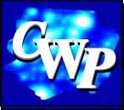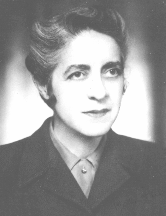Some Important Contributions:
Theory of the
Oppenheimer-Phillips effect - the process whereby a compound
nucleus C' is formed by neutron capture in deuteron bombardment; viz., d + X(Z,A) = C'(Z,A+1) + p.
Two textbooks widely used for undergraduate and graduate physics teaching.
Developed and implemented training for physics teaching at all grade levels.
Some Important Publications:
"Transmutation Function for Deuterons," Phys. Rev. 48: 500 (1935), with J.R. Oppenheimer.
Textbooks:
Principles of Physical Science. Addison-Wesley Publishing Co., Reading, MA 1955, with Francis T. Bonner.
Classical Electricity and Magnetism. Addison-Wesley Pub., Reading,
MA 1955, with W. K. H. Panofsky.
Articles on history of physics:
History of Physics. eds. Melba Phillips and Spencer R. Weart, American Institute of Physics, New York, NY 1985.
"The American Physical Society: A Survey of Its First 50 Years," American Journal of Physics 3:219 (1990).
Honors
Honorary D. Sc., Oakland City College, Indiana, 1964
Oersted Medal, American Association of Physics Teachers, 1974
In recognition of her notable contributions to the teaching of physics.
Karl Taylor Compton Award of American Institute of Physics, 1981
for distinguished statesmanship in science.
In 1981 the American Association of Physics Teacher
created an award, the Melba Newell Phillips Award,
in honor of Phillips' career. It is given
For exceptional contributions to physics education through leadership in the American Association of Physics Teachers. Phillips was the first recipient of this award.
Guy and Rebecca Forman Award for Outstanding Teaching in Undergraduate
Physics, Vanderbilt University, 1988
Honorary Member, Sigma Pi Sigma
Fellow, American Physical Society
Jobs/Positions
1934-35 Instructor, University of California, Berkeley
1935-36 Helen Huff Research Fellow, Bryn Mawr College
1936-37 Margaret Maltby Fellow, Institute for Advanced Study, Princeton
1937-38 Instructor, Connecticut College for Women
1938-41 Instructor, Brooklyn College
1941-44 Lecturer, University of Minnesota
1944 Staff, Harvard Radio Research Laboratory, Cambridge, MA
1944-52 Assistant Professor, Physics Department, Brooklyn
College
1944-52 Part-time appointment, Columbia University
Radiation Laboratory
1957-62 Associate Director, Academic Year Institute,
Washington University, St. Louis
1962-72 Professor, University of Chicago
1972-present Emeritus Professor, University of Chicago
1972-75 Visiting Professor, SUNY, Stony Brook
1980 Visiting Professor, Graduate Scool of the University of Science and Technology, Chinese Academy of Science, Beijing
Education
B.A. Oakland City College, Indiana 1926
M.A. Battle Creek College, Michigan 1928
Ph.D. University of California, Berkeley 1933
Sources and References  consulted consulted
Melba N. Phillips and [amw1992], [mnp1974kf], [33L LSG]
 Additional Information/Comments Additional Information/Comments
In 1952, during the infamous McCarthy era,
Melba Phillips was dismissed from
Brooklyn College and the Columbia Radiation Laboratory for
refusing to cooperate with the McCarran [Congressional] Committee's investigation of friends and colleagues.
In 1987, Brooklyn College publicly apologized.
On May 17,1997, the Physics Department of Brookyn College of The City
University of New York held a day-long symposium in her honor, and established a student scholarship in her name.
"Probably no person has contributed to physics education over a broader range than Melba Newell Phillips. She has co-authored two classic texts, one on electricity and magnetism at the graduate level with Panofsky, the other on physical science at the introductory level with Bonner (lately revised with Raymond). In many ways--through committees, panels, consultantships, and, above all, through her own courses designed for prospective teachers--she has profoundly influenced the teaching of science in the elementary and secondary grades. Students who know her only through her books can recognize her gift for clarity and her passion for precision. Students who have been priviledged to know her in the classroom have been touched by her qualities as a human being. Not only does she have that mark of every great teacher, deep concern for the progress of each student, she also sets standards of intellectual honesty, self-criticism, and style that have left their imprint on a legion who passed her way."
-- Kenneth Ford [mnp1974kf]
Melba Phillips is "a role model for principle and perseverance." --Dwight E.
Neuenschwander
Professional service:
AAPT Executive Board (1962-65)
President, AAPT (1966-67)
Acting Executive Officer, AAPT (1975-77)
AIP governing board (1965-68 and 1975-77)
Council of the AAAS (1976-83)
Commission on College Physics (1962-68)
Edited by:
Melba Phillips and Nina Byers
|
 Welcome
to CWP at UCLA
Welcome
to CWP at UCLA  Welcome
to CWP at UCLA
Welcome
to CWP at UCLA 